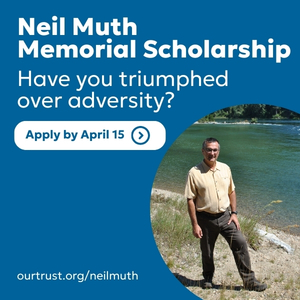By Keith Liggett
I didn’t go to the Trails vs Clear-cutting meeting the other night.
Why bother?
We live in an industrialized valley. 70% of the income is directly derived from the mines. If ever there was an industrial industry, pit coal mining is it. They blast down strata after strata, taking the spoils and stacking them out of the way to get the exposed coal. They blast down sometimes more than 3,000 feet. Mohamad may have been able to move the mountain, but Teck routinely moves several at a time in each of their mines. When they are done, there is nothing. Nothing. A wasteland. Working there sucks your soul.

Logging on private land in the manner of Canwel is the same. Where once we had a FSC conscious steward in Tembec, we now have a leveraged forestry company that must log to pay interest on a loan that has month payments and likely an exorbitant rate. One of Jemi Fibre’s early public documents after they bought the Tembec lands stated their leveraged purchase carried an interest rate of 18%. That was in a public filing. Trees do not regenerate at 18% per annum. It was a losing proposition from the beginning and now we have Canwel. Small wonder they are cutting everything in sight as fast as possible.
Look toward the origin of the river. Look north. It is interesting. The ski hill, the enduring trails and the major recreation all lie on the left-hand side of the Elk River. The industrial rape and pillage lies on the right-hand side of the river.
Nothing political there.
And you must to remember, there are no ascetics to industry. Only the overriding efficiency to make money, as much money as possible incurring as little expense as possible.
In going forward, we must understand that aesthetics will always take a second (maybe fifth or sixth) position to the primary number one goal—the brutal economic drive of stripping the natural resources from the valley.
It started with the “Legend” of William Fernie agreeing to marry a Ktunaxa princess if her father told him where the black stone on her necklace was found. He was told and jilted her. Thus we have the Legend of the Ghostrider on Hosmer Mountain.
(Note: There are no Ktunaxa royalty. This is a completely made up tale.)
The tale is more than a legend. It truly reflects how the settlers treated the trusting native residents. The settlers “word” was meaningless. Perhaps less than meaningless. It was all about the stripping of resources and moving on. Leaving behind a land broken and sterile with no thought of the enduring culture of the Indigenous peoples.

And it’s is still going on 120 years later.
If you doubt that, think about the legend of the Ghostrider. A “legend” that celebrates the broken word of a settler to take advantage of a native resident of the valley. Some still celebrate that broken word naming their business after the event. Our hockey team celebrates the broken word of William Fernie every time they play. And the list goes on and on.
In this day of Truth and Reconciliation, it is not simply tone deaf to celebrate the Legend of the Ghostrider, it is extremely insulting to our Ktunaxa neighbors.
We owe them an apology for our treatment of the land.
We owe them an apology for the community celebration of jilting a woman to take advantage of the original people. A jilting that directly led to the destruction of the natural resources of the valley.
We owe them an apology for how we are planning to continue to destroy the valley in the years ahead.
Shame on the settlers.
Shame on us.
Photo credit: Wildsight & Joseph Spalding
























